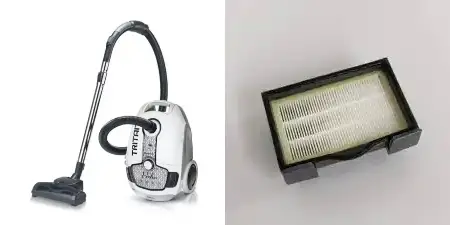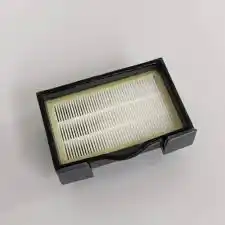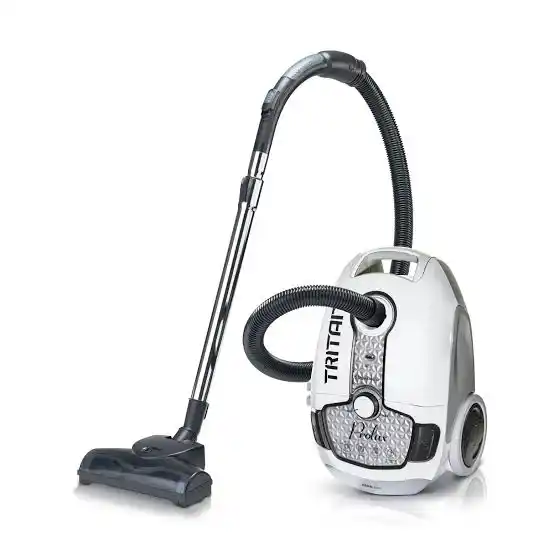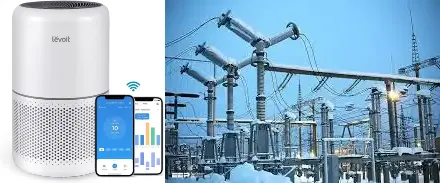As a homeowner, you’re probably aware of the importance of keeping your home clean and tidy. However, a lot of people don’t realize that the air they breathe at home can also have a significant impact on their health and wellbeing.
Indoor air pollution can be worse than outdoor air pollution, with pollutants such as dust, pet dander, and pollen causing respiratory problems and other health issues. That’s where HEPA filters come in – they’re an essential tool for improving the air quality in your home.
In this article, I’ll explain what a HEPA filter is, how it works, and why you should consider using a vacuum with a HEPA filter. Also, in summary, we’ll answer the question “Do I need a vacuum with a HEPA filter?”.
What is a HEPA filter and how does it work?
HEPA stands for High-Efficiency Particulate Air. HEPA filters are made up of a mat of randomly arranged fibers that capture particles as air flows through them.
To be classified as a HEPA filter, it must remove at least 99.97% of particles that are 0.3 microns or larger. This includes common allergens like pollen, dust mites, and pet dander, as well as bacteria and viruses.
HEPA filters work by trapping particles in a variety of ways. Larger particles are caught by the fibers as they pass through the filter, while smaller particles are trapped by diffusion.
This occurs when small particles collide with gas molecules and become trapped in the filter fibers. Additionally, some HEPA filters use electrostatic attraction to capture particles. This occurs when the filter fibers are charged with electricity, which attracts particles like a magnet.
The importance of clean air at home
The air we breathe has a significant impact on our health and wellbeing. Poor indoor air quality can cause a range of health issues, including respiratory problems, headaches, fatigue, and even cancer.
According to the Environmental Protection Agency (EPA), indoor air pollution is one of the top five environmental health risks. This is because we spend so much time indoors, and the air inside our homes can be up to five times more polluted than the air outside.
Common sources of indoor air pollution include tobacco smoke, gas stoves, cleaning products, and pet dander. Other factors, such as poor ventilation and high humidity, can also contribute to poor indoor air quality.
By using a vacuum with a HEPA filter, you can remove many of these pollutants from your home, creating a healthier environment for you and your family.
The benefits of a vacuum with a HEPA filter

There are several benefits to using a vacuum with a HEPA filter. Firstly, it can improve the air quality in your home by removing allergens and pollutants from your floors and carpets.
This is especially important for people with allergies or respiratory problems, as it can help to reduce symptoms such as sneezing, coughing, and wheezing.
Secondly, using a vacuum with a HEPA filter can help to reduce the amount of dust in your home. Dust can be a major source of indoor air pollution, containing pollutants like lead, pesticides, and flame retardants.
By removing dust from your home, you can improve the air quality and reduce your exposure to these harmful chemicals.
Finally, using a vacuum with a HEPA filter can help to prolong the life of your carpets and floors. By removing dirt and dust, you can prevent them from building up and causing damage over time. This can save you money in the long run, as you won’t have to replace your carpets or floors as often.
How to choose the right vacuum with a HEPA filter
When choosing a vacuum with a HEPA filter, there are several factors to consider. Firstly, you’ll want to look for a vacuum with a true HEPA filter. This means that the filter meets the HEPA standard of removing at least 99.97% of particles that are 0.3 microns or larger. Some vacuums claim to have HEPA filters but don’t meet this standard, so it’s important to check the specifications carefully.
Secondly, you’ll want to consider the type of vacuum that’s best suited to your needs. There are several types of vacuum cleaners available, including upright, canister, and stick vacuums.
Upright vacuums are great for deep cleaning carpets, while canister vacuums are more versatile and can be used on a variety of surfaces. Stick vacuums are lightweight and easy to maneuver, making them a good choice for smaller homes or apartments.
Other factors to consider include the weight of the vacuum, the noise level, and the attachments that come with it. Look for a vacuum that’s easy to use and has the features you need to clean your home effectively.
HEPA filter maintenance and replacement

To keep your vacuum with a HEPA filter working effectively, it’s important to maintain and replace the filter regularly. Most manufacturers recommend replacing the filter every six months to a year, depending on how often you use the vacuum.
Some vacuums have washable filters, which can be cleaned and reused, while others require replacement filters.
Regular maintenance is also important for keeping your vacuum in good condition. This includes cleaning the brush roll, emptying the dustbin, and checking for any clogs or blockages.
By taking good care of your vacuum, you can ensure that it lasts for many years and continues to provide clean air in your home.
Frequently asked questions about HEPA filters and vacuums
Q: Can HEPA filters remove odors from my home? A: HEPA filters are designed to remove particles from the air, not odors. To remove odors from your home, you may need to use additional air purifiers or cleaning products.
Q: Are HEPA filters expensive? A: HEPA filters can be more expensive than standard filters, but they’re also more effective at removing pollutants from the air. The cost of replacing the filter will depend on the type of vacuum you have and how often you use it.
Q: Do all vacuums come with HEPA filters? A: No, not all vacuums come with HEPA filters. You’ll need to check the specifications of the vacuum to see if it has a HEPA filter or if one is available as an optional extra.
Alternative methods for improving indoor air quality
Using a vacuum with a HEPA filter is just one way to improve the air quality in your home. There are several other methods you can use to reduce indoor air pollution and create a healthier environment for you and your family. These include:
- Opening windows and doors to improve ventilation
- Using natural cleaning products instead of harsh chemicals
- Getting rid of carpets and using hardwood or tile floors instead
- Using air purifiers to remove pollutants from the air
- Keeping humidity levels low to prevent mold growth
Do I really need a vacuum with a HEPA filter?

If you’re concerned about the air quality in your home and want to create a healthier environment for you and your family, then a vacuum with a HEPA filter is definitely worth considering.
HEPA filters are highly effective at removing allergens and pollutants from the air, and using a vacuum with a HEPA filter can help to reduce respiratory problems and other health issues.
However, if you don’t have any respiratory problems or allergies, and you don’t live in an area with high levels of air pollution, then a vacuum with a HEPA filter may not be essential.
It’s up to you to decide whether the benefits of a vacuum with a HEPA filter outweigh the cost and maintenance requirements.
Conclusion: do I need a vacuum with a HEPA filter?
In conclusion, using a vacuum with a HEPA filter is an excellent way to improve the air quality in your home and create a healthier environment for you and your family.
HEPA filters are highly effective at removing allergens and pollutants from the air, and using a vacuum with a HEPA filter can help to reduce respiratory problems and other health issues.
When choosing a vacuum with a HEPA filter, it’s important to consider the type of vacuum that’s best suited to your needs, as well as the maintenance and replacement requirements of the filter.
By taking good care of your vacuum and using it regularly, you can enjoy clean, healthy air in your home for many years to come.



![8 Best blenders for protein shakes [2024 update] - Top picks & Reviews 7 Best blender for protein shakes](https://www.reviewmast.com/wp-content/uploads/2021/02/best-blender-for-protein-shakes.jpg)